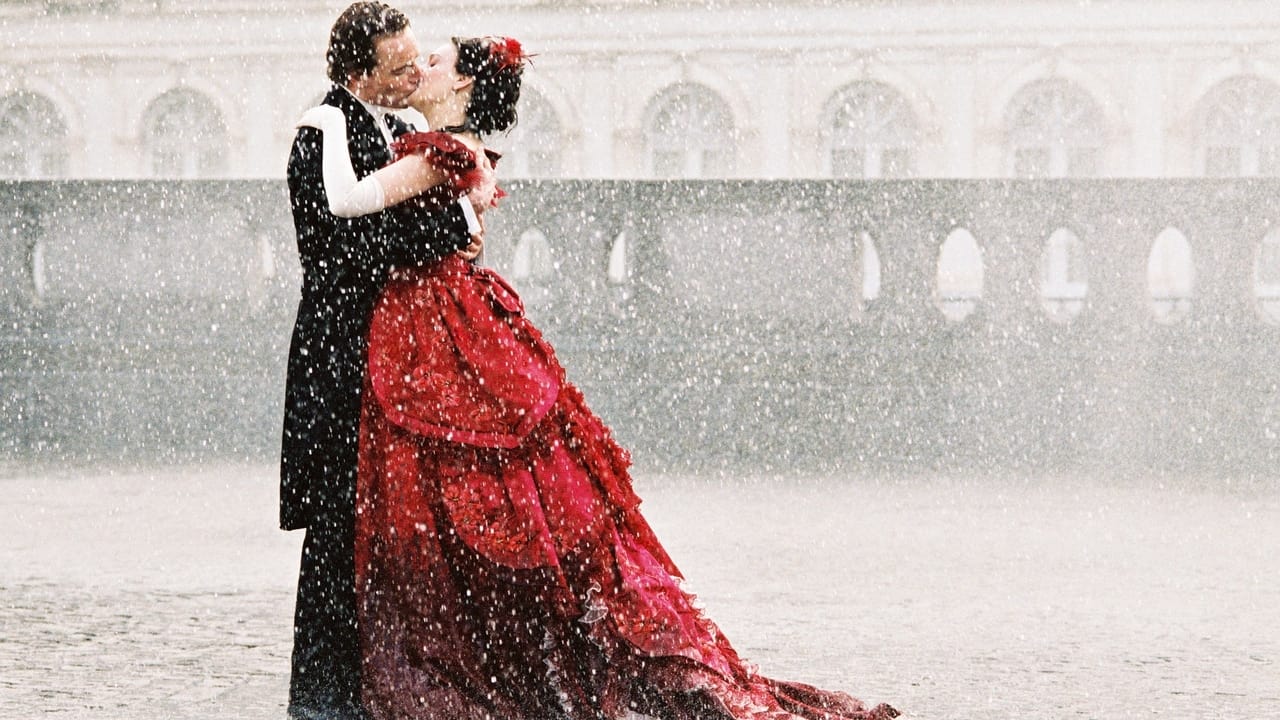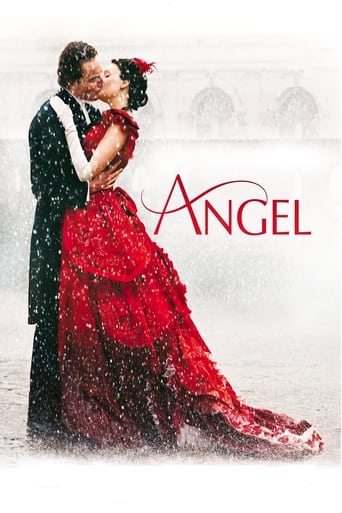ChikPapa
Very disappointed :(
Lidia Draper
Great example of an old-fashioned, pure-at-heart escapist event movie that doesn't pretend to be anything that it's not and has boat loads of fun being its own ludicrous self.
Quiet Muffin
This movie tries so hard to be funny, yet it falls flat every time. Just another example of recycled ideas repackaged with women in an attempt to appeal to a certain audience.
ferdinand1932
The source book was a satire on a truly dreadful author of the late 19th century, a sort of Barbara Cartland, but only more schlocky. If the intent was to have fun on this idea it was missed and badly; if it was taken at face value, it is a sign of incipient idiocy.It plays the whole thing very straight and it seems as if no one saw that this is utter complete trash. Douglas Sirk used to take rubbish - real mediocre uneducated garbage - and make a thing with it as Fassbinder extolled him for doing. It looks as if Ozon has done a Fassbinder and taken real nonsense, which has become a joke cliché of romantic fiction and not seen that it had always been a joke; a wry in-joke on the reader, and on the original writer.Why anyone ever signed up to do this is curious - apart form the money. Why it was financed is even more puzzling. No doubt people will watch this in 10 and 50 years and see something else altogether but none of it will do anything for the creative team behind this.The classic, "Cold Comfort Farm" was a parody of the romantic rural fiction popular in the early 20th century and this work is a roman a clef of the same type of demotic garbage that is consumed in bulk.Under no circumstances go anywhere near this and wipe all playback technologies that may have accessed it.
Joseph Belanger
A group of girls march in succession toward their daily lesson, both their step and their outfits similar in fashion, until one girl breaks from the mold and finds herself at the gates of paradise, forced to gaze from afar. The girl is Angel, the title character from French director, Francois Ozon's first venture into English-language film. Don't let the name fool you though; there is nothing remotely angelic about her. She is spoiled, loud and delusional – everything you want in a heroine you're supposed to root for and just the kind of person you want to see get everything they desire. Right?Angel is a writer, not a very good writer but people love her. She refuses to live in the real world in favor of the perfect illusion she believes she has crafted for herself. It all raises many questions about success and talent, sanity and vanity, but no matter how wickedly she is played by Romola Garai, the woman is too wretched to inspire sympathy in the viewer and Ozon does nothing to help.Ozon's past efforts range in form from ridiculous and satirical to contemplative and tragic. His transition into the realm of period drama is daring considering the smaller size of his previous works but he juggles the elements well. In fact, he balances back and forth between the elaborate costumes, grandiose sets and exaggerated performances so well that it all feels rather plain. Considering how allergic Angel was to the mundane, I don't think she would have been very pleased with this. And trust me, you wouldn't like her mad.
dbdumonteil
In "Huit Femmes" Ozon had already displayed his penchant for Douglas Sirk.The deer in the snow was borrowed from "All that Heaven allows" .It is not surprising he has tackled pure melodrama as he claims Sirk's as well as Minnelli's influence.But that was then and this is now:like the thriller which has undergone some changes since Hitchcock or the sci-fi flick which has never been the same after "2001" ,you cannot conceive a melodrama like those respectable directors of the fifties used to do. "Far from Heaven" was ,for instance,what melodrama should be nowadays:while leaning on the Sirkesque tradition,it nonetheless turned its back on the reactionary side which was latent in such works as "imitation of life" and it made the heroine a soon-to-be civil rights activist.Ozon registered the same desire but it's too little : his heroine,a working class girl who hit the big time with her novels read by the populace tries to react against the war ("blinded by blood" ) but this is short-lived ;there's also the homosexual-side-you-find-in-every-film-Ozon-has-made .Here he suggests lesbian tendencies between Angel and her sister-in-law but it's only skimmed over.WW1 does not seem to be that much a serious subject in the movie.When he made a melodrama about WW2 ,Sirk seemed much more concerned ("A time to love and a time to die"),arguably because he knew what war was .It's the supporting cast who walks away with the honors: the always reliable Charlotte Rampling and Sam Neill.The main character is not particularly endearing in her "paradise" .The cinematography ,with golden and red colors ,is dazzling and tries to imitate the Merchant/Ivory productions.A lot of pounds were obviously spent but Ozon's first works ("Sitcom" "Les Amants Criminels" ) with their low budgets were much more absorbing.
princehal
Hmmmm... if the reviews and comments I've seen are any indication, melodrama is as divisive as ever. I found Ozon's approach admirable: intelligent and objective but not satirically distanced, like Fassbinder without the cruelty. It seems clear to me that he is showing us not a realistic depiction of Angel's life but a version colored by her imagination. The intention is not to mock her but to allow us to share her experience, and to make up our own minds about the value of her fantasies. The closest to an authorial statement comes from the character least sympathetic to Angel: Charlotte Rampling as the publisher's wife comments that in spite of Angel's lack of talent or self-knowledge, she has to admire her drive to succeed. Of course we're not compelled to agree, but it strikes me as a fair assessment.The reactions to this movie remind me of the uncomprehending dismissal of Sofia Coppola's Marie Antoinette, another story of a shallow, self-involved woman that insists on looking through her eyes. This kind of scrupulous generosity is in line with a tradition going back to Flaubert's Madame Bovary, and both directors have the stylistic confidence to carry it off. It may just be that they don't have the critics they deserve.

